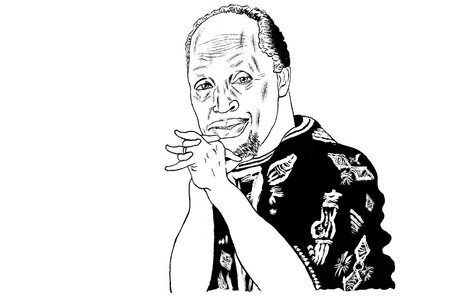Your podcast discovery platform
Curious minds select the most fascinating podcasts from around the world. Discover hand-piqd audio recommendations on your favorite topics.

piqer for: Global finds
Ciku Kimeria is a Kenyan author "Of goats and poisoned oranges" - (https://www.amazon.com/goats-poisoned-oranges-Ciku-Kimeria-ebook/dp/B00HBBWPI6), development consultant, adventurer and travel blogger (www.thekenyanexplorer.com). She writes both fiction and non-fiction focusing on African stories that need telling. She has worked on diverse pieces for various international and local publications including Quartz, Ozy, The East African etc. She has travelled to 45 countries – 16 of them in Africa. 153 countries to go and 63 territories!
"Of goats and poisoned oranges" has been extremely well received in Kenya and beyond. It tells the story of a Kenyan middle aged power couple and their complicated marriage. The novel explores issues of greed, revenge, betrayal and murder. It runs from the 1960s to 2013. It has been described as “Wicked, funny, poignant, wacky, human, a big ball of fun and danger”, “A unique and captivating book”, “Fun and intriguing”, “Impossible to put down once you start reading.”
She recently moved to Dakar, Senegal from Kenya to work on her second novel. She also works at as the Africa Communication Manager at a leading global strategy consulting firm.
She holds a B.S. in Management Science from MIT with minors in Urban Planning and International development studies.
Language As A War Zone
Ngugi wa Thiong'o, one of Africa's best known writers and a frequent front runner to win the Nobel Prize in literature, has been a key proponent for African writers writing in local languages.
There is a reality in Africa that 90 percent of the population speaks different languages. And if you think, as I do, that people are an engine of change, then the question of their access to information and skills is very important. When you write a novel in English—no matter how radical, no matter how progressive—it can only reach people in a trickle-down fashion.
Ngugi's life is a fascinating one. He was born to a peasant family during colonial times at the height of the Mau Mau resistance against colonial rule, but was educated at the best schools in Kenya, Uganda and in the UK. On his return to Kenya, his writing focused on the post-colonial governments that employed similar ways of oppressing people as the colonial governments they had replaced. After writing a play about inequality in Kenya in his mother tongue of Kikuyu, he was imprisoned. Writing in his mother tongue was considered an act of defiance by the post-colonial government. Rather than making him tow the line, his arrest had the opposite effect. He abandoned writing in English and continued to defy the government, writing an entire novel in Kikuyu on toilet paper during his imprisonment. He was eventually exiled from the country.
His whole life experience instilled in him an inextinguishable love and respect for African languages and an understanding that language is power.
I realized that when I looked at the history of colonialism, the colonizer not only imposes his language, but he denigrates and represses the languages of the colonized. So the condition of learning English was the unlearning of our language, which continued into the postcolonial era.
